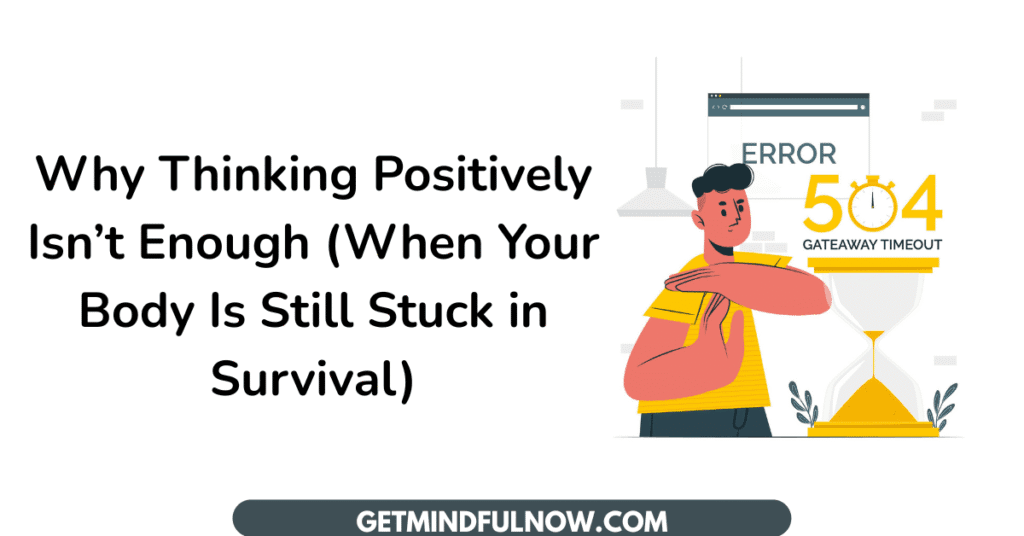They put the entire weight of the relationship on me for as long as I can remember.
I was the one who reached out first. Who apologized first. Who tried to “understand where they’re coming from.” I carried every emotional load like it was my birthright, because somewhere deep down, I thought that’s what you do when it’s blood. When you’re the eldest. When you’re the one who feels everything too deeply.
And for years, I said nothing. Not because it didn’t hurt, but because I thought the pain was part of the job…
They were absent emotionally. Cold, dismissive. But I kept showing up, on rainy days, on bad days, during chaos, because I believed that one day, they’d see me not as their caretaker, their emotional backup plan, their unpaid therapist…
but simply as a sibling. A human being who also deserves to be loved back.
But something changes when you finally speak up.
When you start to say, “This feels heavy.” When you ask, “Why is it always me who gives and never you?”
At first, they ignore you, pretend they didn’t hear.
Then they act like you’re being dramatic. Too sensitive.
And finally, when your healing makes their manipulation visible, they panic…
They know they’ve been keeping you on a leash, using love as currency, silence as control. But they can’t be the bad guy. That doesn’t fit their story. So they rewrite the script and hand you the blame.
They offer to return every monetary favor you ever gave, not out of integrity, but as a twisted way to erase your emotional pain.
To say, “See? You only did this to hold it over me.” As if your years of care, of waiting, of forgiving, were all part of some transaction.
And when you refuse to carry the blame they’ve thrown at your feet, when you don’t break down into guilt and beg to make it right… they shut the door.
Block you out.
And act like you never existed.
That’s the part no one prepares you for:
Not the pain of their absence.
But the pain of realizing they were always absent.
Even when you gave them your whole heart hoping they’d someday offer theirs in return.

The Grief That Comes After the Longing
At first, it’s rage. Then confusion. Then that deep aching quiet: grief.
Grief not just for the person they failed to be, but for the version of you who waited. Who believed. Who carried and carried and carried until her arms gave out.
This is where the grief begins: when the longing ends.
When you realize that no version of your love will make them emotionally responsible. No amount of waiting will make them show up differently. And that their silence, their gaslighting, their absence, was never accidental. It was a pattern.
Psychologists refer to this as “emotional parentification,” a term used when children (often the eldest) are made responsible for the emotional well-being of others in the family, often siblings. A 2016 study published in the Journal of Family Psychology confirmed that this dynamic is linked to long-term impacts like anxiety, guilt, depression, and a disrupted sense of self-worth.
But rarely does anyone talk about what happens when you finally stop.

How to Identify This Sinister Pattern in Your Relationships
Not sure if this is you? Here are signs you’re stuck in a cycle of emotional labor disguised as love:
- You constantly initiate emotional check-ins and are met with coldness or indifference.
- You’re always “too sensitive” when you express hurt, even though your pain is valid.
- You feel a constant fear that not giving enough will result in rejection or abandonment.
- They weaponize guilt. They use silence, distance, or withdrawal as punishment.
- They offer to “pay you back” to invalidate the years of emotional energy you gave.
This isn’t care. This is emotional manipulation. And the worst part? It often comes wrapped in the language of family, culture, and duty.
What Happens After You Say “No More”
When you stop being the parent, the therapist, the fixer, the entire dysfunctional system around you starts glitching.
They will,
- Blame you.
- Accuse you of being selfish.
- Say you’ve “changed” or “lost your mind.”
- Twist your healing into harm.
Because your boundary doesn’t just free you, it confronts them with a truth they’ve buried: that they chose not to show up. And now you won’t carry the cost.
How to Start Healing Without Their Validation
1. Let go of the hope that they will come around. This is the heaviest step. But it is also the most liberating. Healing begins when you stop bargaining for basic decency.
2. Learn to mother yourself.
Instead of mothering them, begin re-parenting your own emotional needs. Create rituals that bring you comfort, safety, and clarity.
3. Grieve fully.
This isn’t about “getting over it.” It’s about making space for the grief you were never allowed to feel. Write it. Cry it. Move it out of your body.
4. Stop explaining your boundaries.
The more you explain, the more they twist it. You are allowed to walk away from people who repeatedly harm you, no matter what the blood tie is.
5. Lean into people who see you.
Healing happens in safe relationships. Online or offline, start letting people into your story who don’t make you beg to be understood.
Neuroscientific studies (Dr. Bruce Perry & Bessel van der Kolk) have shown that relational healing, not just isolated self-work, is essential to restoring safety in the nervous system. You don’t heal in isolation. You heal in connection.

Final Words: The Courage to Walk Away
One of the hardest truths you’ll ever learn is this:
You can love someone deeply and still need to walk away to save your own life.
You can forgive the child version of them who didn’t know better, while holding the adult version accountable for the pain they inflict now.
And if they paint you as the villain for wanting reciprocity, that tells you everything.
Their story might erase you.
But yours, finally, sets you free.
If this resonated with you, you’re not alone. You’re not broken. You’re just tired of holding up a house that was never built to support you.
And it’s okay to put the weight down.
For good.
Connect with me on Threads.








